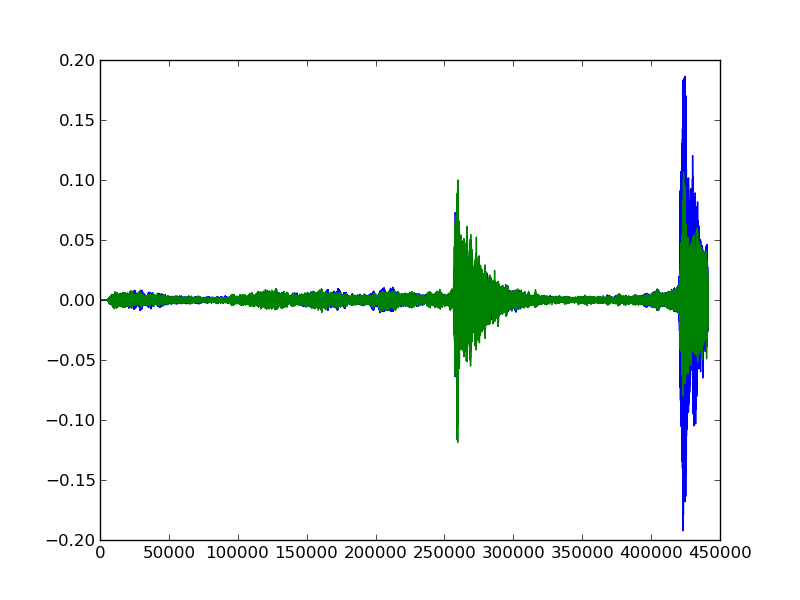Evolving your own music for fun and no profit
Vik Paruchuri
DataQuest (www.dataquest.io)
vik.paruchuri@gmail.com
What's evolving music?
- Take existing music
- Learn patterns from it
- Use the knowledge to make new music
- Judge your new music
Why?
- Because it's cool
- See above reason
Midi format
[midi.ProgramChangeEvent(tick=0, channel=0, data=[0]),
midi.NoteOffEvent(tick=20, channel=9, data=[42, 64]),
midi.NoteOnEvent(tick=28, channel=9, data=[38, 90]),
midi.NoteOnEvent(tick=0, channel=9, data=[42, 90]),
midi.NoteOffEvent(tick=20, channel=9, data=[38, 64]),
midi.NoteOffEvent(tick=0, channel=9, data=[42, 64]),
midi.NoteOnEvent(tick=28, channel=9, data=[42, 70]),
midi.NoteOffEvent(tick=20, channel=9, data=[35, 64]),
midi.NoteOffEvent(tick=0, channel=9, data=[42, 64]),
midi.NoteOnEvent(tick=28, channel=9, data=[42, 58]),
midi.EndOfTrackEvent(tick=0, data=[])]
MIDI stored as byte code

Python-midi to the rescue!
- Parses midi into python data structures
- Found at https://github.com/vishnubob/python-midi
Step 1: ACQUIRE MUSIC
- Use scrapy -- http://scrapy.org/
- Write crawlers to scrape sites
- Download .mid files
Step 2: Render tracks
- MIDI has to be "rendered"
- Output to .ogg files
Step 45: Markov chain everything!

Construct chains
- Make matrices for pitch, velocity, tick per-instrument
- Rows and columns are numbers
- Cells contain # of transitions from row state to column state
Note "phrases"
- Music has structure
- Phrases are basic units of it
- I have almost no music theory experience
- Let me know after if I'm wrong
- Pull out sequences of 8 notes
Making a track
- Select the instrument
- Randomly select a starting phrase
- Use markov chains to pick next phrase
- Repeat until specified length
Making a song
- Pick instruments that are good together
- Put tracks from those instruments together
- Add a tempo track
Evaluating song
- Render midi to ogg file
- Use fluidsynth, oggenc, and sox
Look at the audio

Read audio in
$$\begin{bmatrix} 2.35185598e-05 & -1.04448336e-05\\ -3.46823663e-06 & -3.73403673e-05\\ -2.69492170e-06 & -1.44758296e-05\\ 9.47549870e-06 & 2.09419904e-05\\ -2.70856035e-05 & 3.44590421e-06\\ -3.01332675e-05 & 2.74870854e-05\\ -1.44664727e-06 & 7.49632018e-05\\ -3.80197125e-05 & 2.56412422e-05\\ -5.61815832e-05 & -1.29676855e-05\\ -4.73532873e-06 & 3.69851950e-05 \end{bmatrix}$$
Feature calculation
- Calculate a bunch of features
- Split song into "bins"
- ZCR, slope, peak count, and many more
- 154 in all
- Put into matrix
Scoring songs
- Compare generated song with existing songs
- Used random forest at one point to predict
- Simpler to use cosine distance
- Lower distance is better
Semi-genetic algorithm
- Create candidate songs
- Score them all
- Pick the best ones
- Remix songs by swapping tracks
- Generate some new songs
Generations
- Evolve multiple generations
- Try to minimize distance from existing songs
- Algorithm finds local minimum quickly
- More than 3 generations gets duplicate "best" song
Ways to make it better
- Hand-label some songs, and use them for supervised learning
- Get more training data
- Generate better features
- Do more in the genetic algorithm than just remix
Open source
- Available at https://github.com/VikParuchuri/evolve-music2
- This presentation available at: https://github.com/VikParuchuri/pydataboston2015
- Want to learn how to do things like this? Check out www.dataquest.io!